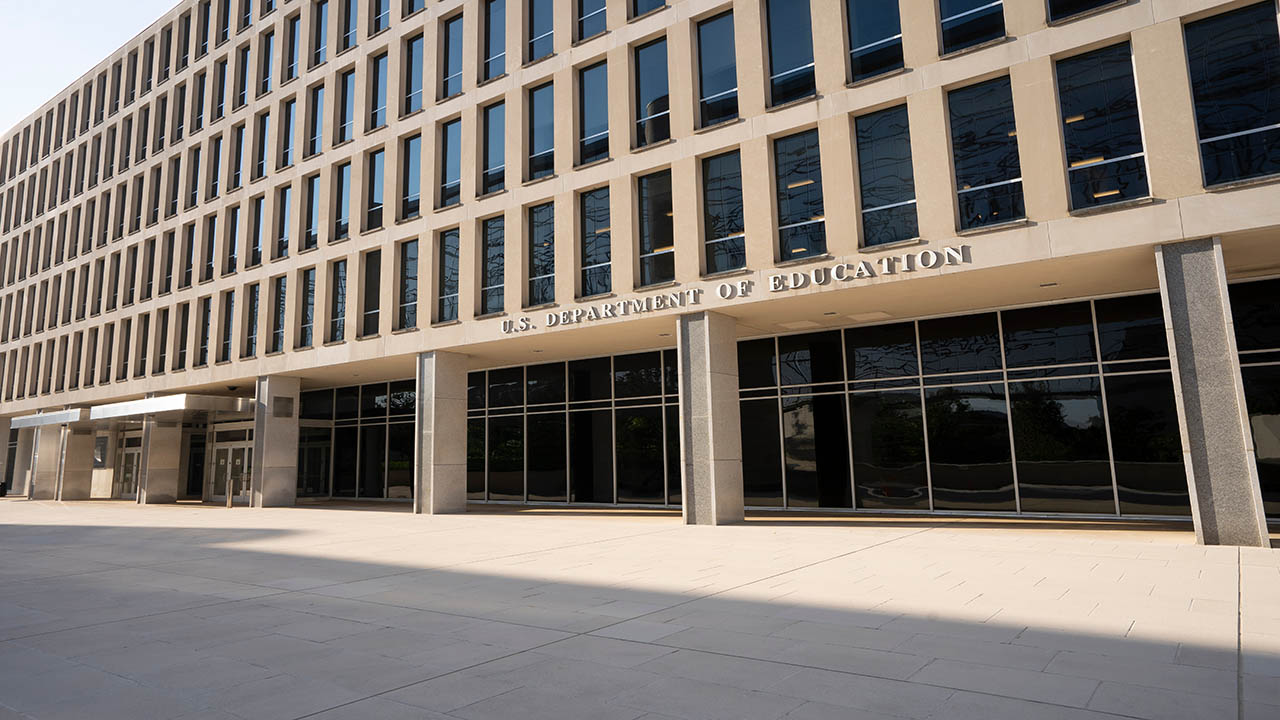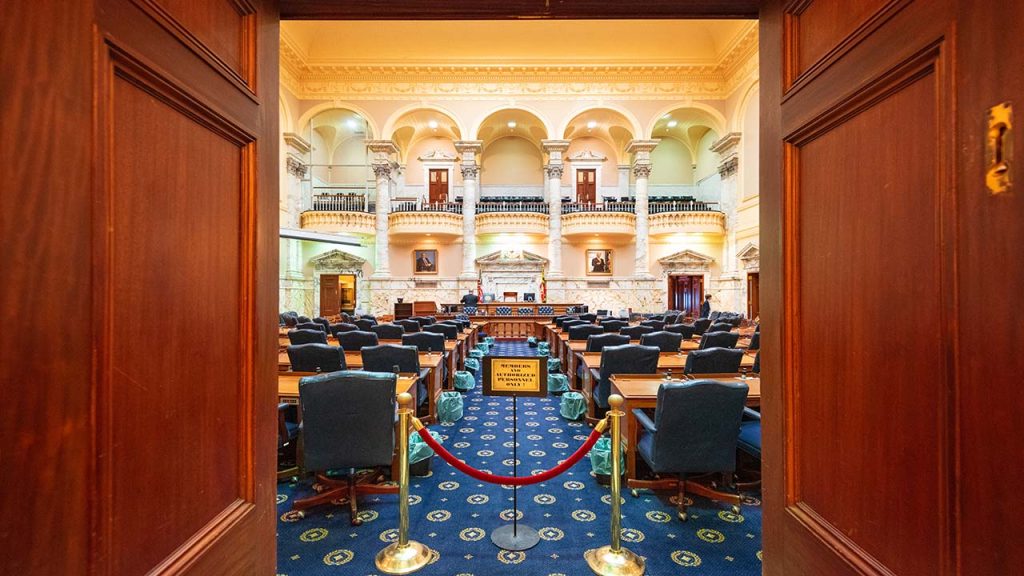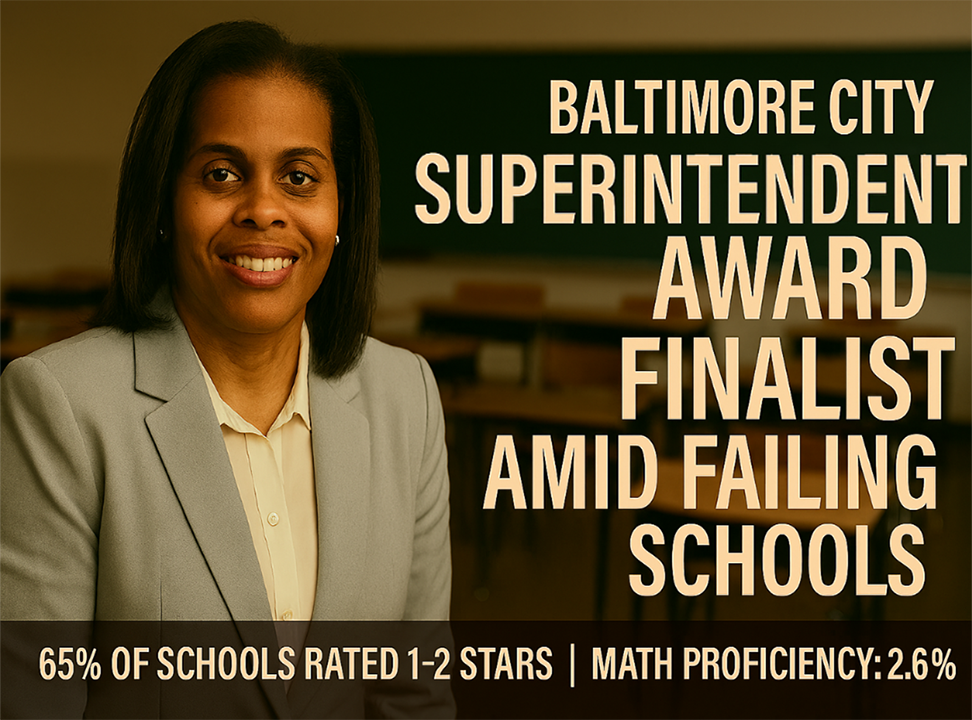

Worcester’s Incoming Superintendent’s First Challenge: Balancing Equity and Compliance
On Thursday, President Donald Trump announced various federal orders aimed at reshaping school discipline across the United States. His plan demands a hard pivot away from race-based considerations and toward strict, behavior-based accountability in K-12 classrooms. While many conservatives welcomed the move, it immediately raised questions for states like Maryland — where educational policies have for years been built around “equity.”
In Maryland, the new federal pressure comes at a difficult time. The State Board of Education, along with local leaders like the incoming Worcester County Superintendent, Dr. Annette Wallace, must now navigate a tough legal and financial situation: balancing state autonomy over education, while facing the federal threat of losing federal funding if they don’t comply.
Let’s unpack what Trump’s discipline directive really means, how it could impact Maryland, and what Worcester County’s leadership must address moving forward.
What Trump’s Announcement Means for Discipline
Trump’s new directive insists that school discipline decisions must be based solely on a student’s actions — not on race, ethnicity, or any other demographic characteristic. In other words, misbehavior should be treated equally across the board, with no consideration for broader social or racial considerations in outcomes.
The Trump plan directly overturns Obama-era guidance and Biden-era practices that encouraged schools to monitor and address racial disparities in discipline. Trump’s Education Department is issuing policies emphasizing traditional virtues like respect, responsibility, and rule-following — rooted in personal accountability rather than group identity.
Further, schools accepting federal funds would need to certify that they comply with Title VI of the Civil Rights Act, and that they do not use Diversity, Equity, and Inclusion (DEI) programs to advantage one racial group over another. Failure to comply could lead to a loss of federal funding.
How Maryland’s Situation Became Complicated
Trump’s announcement did not come out of the blue. In February, the U.S. Department of Education sent a letter to all states, including Maryland, warning that DEI practices embedded in school life could violate Title VI if they resulted in preferential treatment based on race. Maryland, which received $285.6 million in federal education funding this year, was put on notice: remove DEI from schools or risk losing federal support.
On April 3, federal officials doubled down, sending a second letter demanding that local superintendents personally sign a certification affirming full compliance. That certification specifically cited the prohibition of DEI programs that advantage one race over another.
However, Maryland State Superintendent Carey Wright pushed back, offering what many have called a “workaround.” Rather than signing the federal government’s certification verbatim, Maryland crafted an alternative version. It simply states that districts are in “full compliance” with Title VI and other relevant federal laws — without explicitly agreeing that certain DEI practices could themselves be a violation of title VI.
Wright made it clear that she disagrees with the federal interpretation of the law, arguing that Maryland’s commitment to non-discrimination already fulfills the requirements of Title VI. She encouraged local superintendents to consult their attorneys before signing anything.
This maneuver leaves Maryland walking a tightrope: asserting its independence while hoping not to trigger a funding crisis.
What This Means for Worcester County’s New Leadership
For Worcester County Public Schools (WCPS), these developments land at a time of transition, with a new superintendent soon to step in. She will face immediate challenges in balancing federal expectations, state directives, and the county’s own deeply embedded policies around equity.
Here is some of the language in WCPS’s current Board policies under the “Educational Equity” section (I-E-01), last revised in November 2024:
- Resource Allocation: “Direct the use of resources to provide equitable access to educational opportunities and services, even when this means differentiating resource allocation.”
- Program Review: “Review existing policies, programs, professional development, and procedures for the promotion of educational equity, and all applicable new policies, programs, and procedures will be developed using an educational equity lens tool and with educational equity as a priority.”
- Workforce Diversity: “Actively work toward a balanced teacher and administrator workforce to reflect the diversity of the student body. The district seeks to recruit, employ, support, and retain a workforce that includes racial, gender, and linguistic diversity.”
- Instructional Materials: “Provide materials and assessments that reflect the diversity of students and staff and are geared toward the understanding and appreciation of culture, class, language, ethnicity, poverty, ability, and other differences that contribute to the uniqueness of each student and staff member.”
While these policies do not directly favor one group over another, they surely skirt around the issue and, some may say, indirectly do so. These policies are well-intentioned efforts to close opportunity gaps and build productive educational environments. However, under Trump’s proposed rules, any practice that could be seen as favoring one group over another — even in the name of equity — may come under legal scrutiny.
For the new superintendent, the question becomes: can Worcester County maintain its commitments to equity while staying compliant with new federal mandates, if they are enforced?
The answer will not be easy. WCPS leadership will need to carefully audit policies, programs, and professional development initiatives to ensure they do not inadvertently conflict with a strict interpretation of Title VI as defined by the federal government. That process will likely require legal consultation, communication with parents and staff, and possibly a reworking of the district’s stated equity goals.
However, as often stated, the state is the ultimate authority on education in Maryland.
The Bigger Picture: State vs. Federal Power
It’s important to remember that in the United States, education governance is primarily a state responsibility. Maryland — not Washington — determines curricula, discipline codes, teacher certification, and more.
However, the federal government exerts enormous influence through funding. By tying compliance to Title VI certifications, Trump’s Education Department is essentially using the “power of the purse” to bring states into line. Maryland’s workaround — affirming compliance without agreeing to his administration’s interpretation off the law — is an attempt to preserve state authority while avoiding financial penalty.
But it remains unclear if the federal Department of Education will accept Maryland’s modified certification. If they don’t, Maryland may face an ultimatum: amend or dismantle DEI-infused policies at the risk of losing nearly $300 million in support.
The dust from Trump’s announcement is still settling, but it’s clear that the coming months will be critical for Maryland schools — and for Worcester County’s next superintendent. Whether Maryland’s workaround holds or collapses under federal scrutiny will shape how discipline and equity initiatives unfold locally.
For Worcester County, the moment calls for steady leadership: someone who can uphold core values of fairness and opportunity while navigating shifting federal requirements. Students, families, and educators alike will be watching closely to see how the district balances its vision with the need to protect crucial resources.
Ultimately, the debate over discipline isn’t just about policy — it’s about the character of our schools. Should discipline be tailored to address different groups, or applied uniformly, focusing solely on behavior? Trump’s Thursday announcement has put that question back at the heart of the national education conversation. And Worcester County, like every other district, must now answer carefully, thoughtfully, and with students’ futures in mind.
Dig Deeper With Our Longreads
Newsletter Sign up to get our best longform features, investigations, and thought-provoking essays, in your inbox every Sunday.
The MEN was founded by John Huber in the fall of 2020. It was founded to provide a platform for expert opinion and commentary on current issues that directly or indirectly affect education. All opinions are valued and accepted providing they are expressed in a professional manner. The Maryland Education Network consists of Blogs, Videos, and other interaction among the K-12 community.











